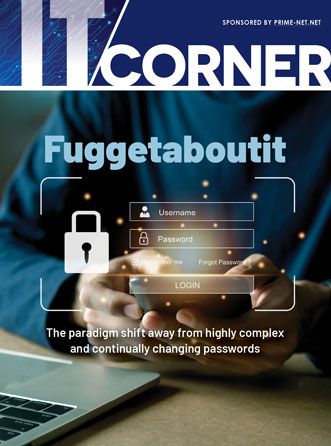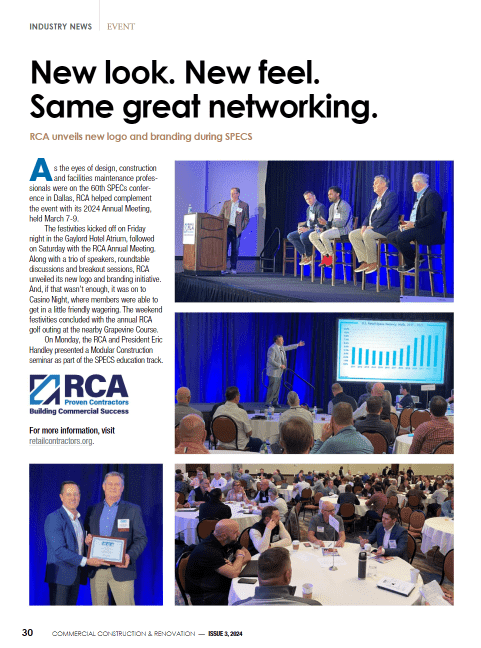Construction has been one of the slowest industries to adopt technology. That’s partly cultural—folks in the industry like to solve problems with their own ingenuity. Many firms are still family owned, and there’s still a lot reverence for tradition. Finally, this is an industry with thin margins, where the first funding priorities are equipment and personnel.
But, it’s also partly because there hasn’t been a lot of technology built to meet the needs of the industry. Before smart phones, it was hard to bring technology to the field. Even then, you had to have a good Wi-Fi connection, which wasn’t consistently available, or an expensive data plan. And, a lot of early field capture technology was based on someone having to manually input data into a device. That was a non-starter; having superintendents manually entering data didn’t really provide much in the way of productivity gains, and made for a lot of unhappy superintendents.
Now all that is changing. Founders are aging out of the industry, creating an opportunity for younger generations to apply technology with less resistance. Project owners are requiring the use of different technologies as a condition of funding. And, there are an increasing number of great solutions specifically designed for the industry. Connectivity and computing power have increased dramatically, making mobile applications a lot more reliable, robust and user-friendly. Cameras, drones, GPS, and RFID technology are making it easy to capture data without human intervention.
As more technology comes into play, the industry is finally waking up to the impact it can have on bottom line profitability. Here are some of the technology opportunities construction companies should have on their radar:
AR and VR
Whether it’s on a computer screen or through a headset, augmented and virtual reality are taking the output of BIM software and creating virtual models of a structure subcontractors can walk through before it’s even built, allowing them to collaborate and spot potential issues in a virtual environment.
For example, an electrical contractor could walk through the schematic of what the mechanical contractor would have built so they can say, “Okay, I see that there’s going to be a standpipe here, so we’ll run our conduit right next to it.” That leads to less rework and fewer scheduling delays. AR can also be used to help train workers in a more effective and cost-efficient manner.
AI: Not yet
Artificial intelligence could potentially have a big impact on the industry, but probably not for quite few years. One immediate application is job site safety. There are already rudimentary tools that can analyze video from job site cameras and spot hazards. They can also determine from workers’ movements whether or not they’re accessing a scaffold or carrying materials up a flight of stairs correctly.
Eventually AI could be used to help improve project scheduling by learning from data from past projects and flagging issues that could lead to delays. It could analyze the performance of buildings over time and offer materials recommendations. But AI needs relevant data to learn from, so the industry needs to digitize first.
Internet of Things
If you look at industries that are starting to see some success with AI, such as health care and manufacturing, everything is happening more or less in one place. That makes it easier to put sensors on a machine or robot and capture data. It’s a bit more of a challenge when you have multiple job sites and a lot of movable equipment, so taking data capture out of the hands of individuals and automating it, and storing data in a centralized place where it can be managed is the frontier right now.
Back office efficiency
Most firms are using some sort of automated accounting platform. But there are still gaps that need to be filled.
Invoice routing and approval is a big one. People are literally having the back office scan invoices and then email out invoice images to the project superintendent. Invoice images are “digital paper,” meaning they’re not actual digital artifacts. Any data that’s on them has to be manually entered, and the whole routing and approval process is manual as well.
Then there’s the payment process itself. Solutions built to handle procure to pay actually only handle procure to invoice approval, so then you need a payments automation solution on top of that. The good news is that automating payments is pretty easy to do, and it doesn’t depend on automating the invoice workflow, which is a much bigger project.
Business intelligence
Most ERP systems offer tons of reports, but people want to combine that with data from other sources. They want to be able to look at the data three-dimensionally and be able to drill into it. ERP systems don’t have that kind of capability, and as the amount of data companies have access to grows, so does the need to have a business intelligence platform to pull it together and generate analyses and models.
There are a lot of challenges to overcome before construction becomes a fully digitized industry. It’s still hard to deploy technology organization-wide when you have workers on multiple job sites. Do you pull everyone off the job to come in for training? Probably not. Adoption can move pretty slowly, with some workers using the technology and others continuing to do things the way they’ve always done them. That creates data silos that require manual intervention to boil up to actionable, executive level reporting. So, it may take longer to realize the ROI on some tech investments than in other industries. Nonetheless, the industry is moving forward.
Fifteen years ago, you had cutting-edge technology vendors trying to convince construction companies to try their new tablet-based reporting tool or time card, but the use cases weren’t compelling. Now that there are a lot of proven solutions from reputable vendors, there’s more trust and confidence that field solutions are going to be dependable and effective.
Contractors are starting to realize that if they want to win bids, they have to bring that to the table. You have people in the field who are now used to doing everything on their mobile phones. And you have this generational shift happening, with younger generations coming in expecting to apply technology to any number of use cases. It’s a magical moment in time where the industry is poised to leap into the future.
About the Author
Jason is the Vice President of Viewpoint Partnership Sales in the West Region at Nvoicepay, a FLEETCOR company. His experience in construction technology spans 20 years, and includes positions held with companies like Visa and Comdata. He delivers our scalable payment solution, Viewpoint ePayments powered by Nvoicepay, to customers of Viewpoint CS.








 The 2024 virtual Men’s Round Table will be held Q4, 2024, date TBD.
The 2024 virtual Men’s Round Table will be held Q4, 2024, date TBD.











